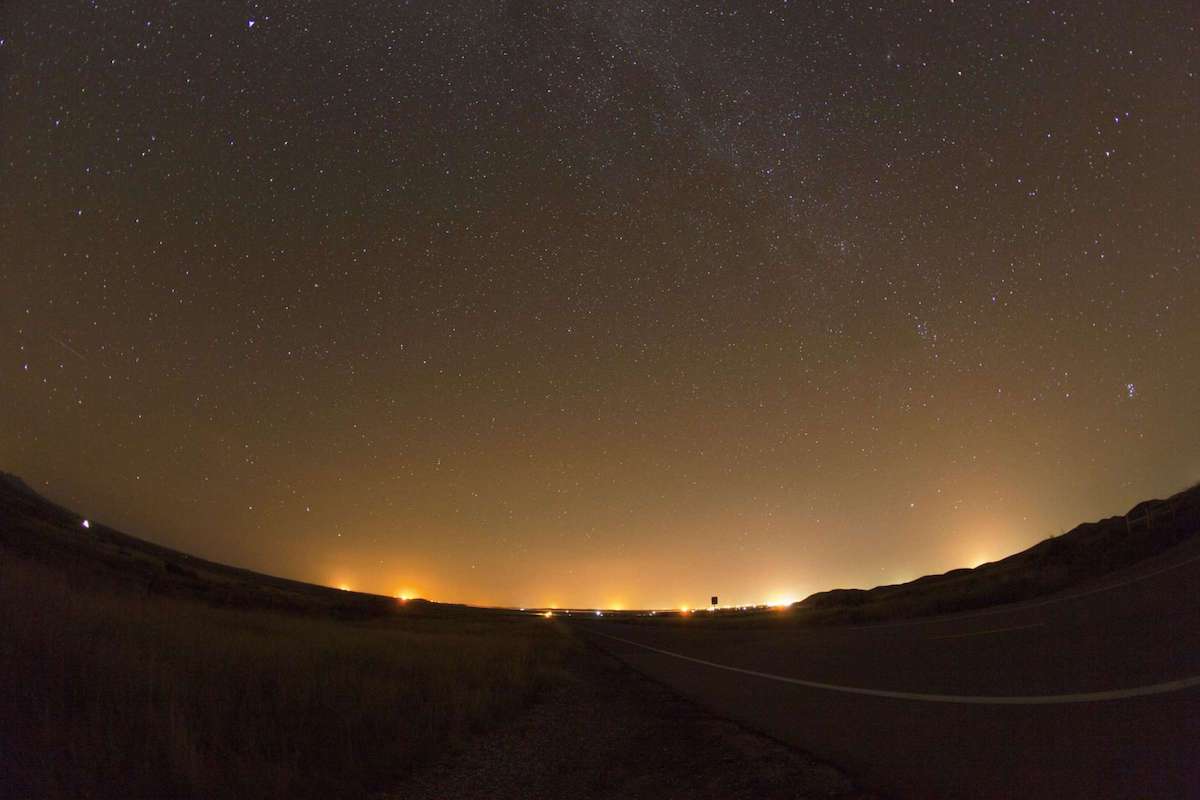Respect Big Bend releases blueprint for sustainable energy development
 Light pollution is seen in Jeff Davis County in this 2016 file photo. Respect Big Bend Coalition, formed to promote responsible and sustainable energy development in the Big Bend region and Tri-County area of Brewster, Jeff Davis and Presidio counties, has issued its report on energy development in the area.
Light pollution is seen in Jeff Davis County in this 2016 file photo. Respect Big Bend Coalition, formed to promote responsible and sustainable energy development in the Big Bend region and Tri-County area of Brewster, Jeff Davis and Presidio counties, has issued its report on energy development in the area.
Technological advances are expanding the reach of energy development, whether oil and gas, wind or solar.
That reach is frequently making its way to areas untouched or rarely touched by development, like the Big Bend region. Watching development move closer and closer, the Respect Big Bend Coalition was formed to help promote responsible energy development. The group recently released its report on energy development and a roadmap to development by design in West Texas.
“Decisions about energy development in the Big Bend region and around the world should be made carefully and intelligently with consideration of the impact on the environment,” said Marilu Hastings, chief innovation and strategy officer at the Cynthia and George Mitchell Foundation, which focuses on sustainable development.
In an online event to discuss the report, she said any negative impact from energy development should be minimized to maximize the benefits of energy. While methane and carbon dioxide emissions should be addressed, Hastings said other impacts like water use and land degradation should not be overlooked.
When the project was launched in 2019, Melinda Taylor, law professor at the University of Texas said the ideas was to gather all stakeholders together – community members and landowners – to work with scientists, conservationists and the energy industry to develop a blueprint of what energy development in the region could look like.
“We knew it was important to the economy of Texas and of West Texas in particular and we were committed to the idea that it could be done responsibly and done to minimize the impact from energy development,” she said.
Billy Tarrant, associate director of stewardship services at Sul Ross State University’s Borderlands Research Institute, said discussions revealed that the region’s values included preserving the large heritage ranches still at work in the region, private property rights, maintaining vistas and dark skies, the remoteness and quiet of the region, as well preserving wildlife habitat and migration corridors and ecotourism.
What he was proud of, he said, was that discussions minimized politics and focused on the common values held by all participants.
The result is the creation of maps that detail what are considered high value and low value lands that allow for the assessment of suitable energy resources, whether oil and gas or solar, said Michael Young, senior research scientist at the Bureau of Economic Geology at the University of Texas at Austin.
There is plenty of lower-value land that would allow the higher-value landscapes to be kept intact, he said. Land restoration is also a concern and should be part of the early planning process, he added. Land restoration was identified as a top priority in the process.
“We’re focusing on the intentionality of the decision-making process; that can work with any type of energy development,” Young said.
Development by design means anticipating where energy development may be sited, said Joe Kiesecker, lead scientist for The Nature Conservancy, and identifying the impacts and tradeoffs. That is moving from a reactive process to a proactive process, he said.
“Stakeholder involvement is crucial to the process,” he said. “If decision makers have information on the values of the community and how development would impact those values, that influences their decisions.
Such information and the ability to utilize the maps to determine impacts can be a powerful tool for the citizens of West Texas and the developers “wanting a sense of where the resources are and how they can take steps to avoid impacting those resources,” said Taylor.

NEWS
Hide Full Index
Show Full Index
View All News